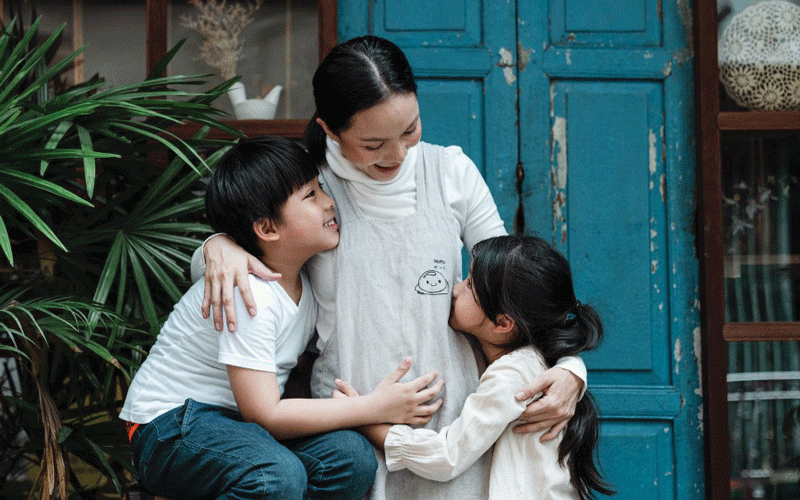
Introduction
The bonds between adult children and their parents are shaped by various factors, including upbringing, shared experiences, and emotional connections. It is not uncommon for adult children to feel a closer relationship with their mothers than their fathers. While every relationship is unique, several factors contribute to this dynamic. The relationship between fathers and adult children can be complex and filled with challenges. As children grow into adults, their needs, expectations, and priorities often change. This shift can strain the dynamics between fathers and their grown-up children. However, by understanding these challenges and making conscious efforts to overcome them, fathers and adult children can have healthier and more fulfilling relationships. This article aims to explore some potential reasons why adult children may feel closer to their mothers and not their fathers.
- Communication and emotional connection
One of the most common challenges in father-adult child relationships is the communication. Mothers often tend to establish strong emotional connections with their children from the very beginning. As primary caregivers, mothers are often more attuned to their children’s emotional needs, promoting an environment for open and honest communication. This emotional connection built during childhood can naturally extend into adulthood, leading to a sense of closeness and security. Over the years, fathers may have established communication patterns, expecting their children to listen without questioning a offering opinions. As children grow into adults, they seek more equality in communication, wanting their thoughts, ideas, and concerns to be heard and respected. Both fathers and adult children need to actively work on improving communication. Fathers can learn to be more open-minded and receptive to their children’s perspectives, while adult children can practice expressing their thoughts and feelings with respect and empathy.
- Different priorities and interests
Another challenge arises when fathers and adult children have differing priorities and interests. As adults, children may be focused on building their careers, maintaining relationships, or starting families of their own, while fathers might cling to traditional values and a more conservative outlook. Mothers on the other hand, often engage in activities and share interests that align with their children’s hobbies and preferences. Whether it is cooking, crafts, or shared cultural experiences, these shared interests can deepen the bond between mothers and adult children. Additionally, mothers often take on the role of introducing their children to social settings, nurturing friendships, and guiding their socialisation. The shared memories and experiences developed during these times can contribute to a stronger connection between mothers and their adult children. Fathers can show support by taking an interest in their adult children’s lives and endeavours, even if they do not fully understand or agree with them. Likewise, adult children can make an effort to understand and appreciate their fathers’ perspectives, finding common ground to bridge the gap.
- Unresolved past issues
Unresolved past issues can cast a shadow over the relationship between fathers and adult children. Childhood conflicts, differing expectations during the adult-child transition, or feelings of abandonment may linger, creating tension or emotional distance. Cultural and social factors influence the closer bond between adult children and their mothers. Societal expectations, stereotypes, and the portrayal of mothers as caregivers and nurturers can further reinforce the presumed closer relationship between mothers and their children. These influences can shape perceptions and expectations, contributing to the sense of closeness between adult children and their mothers while fathers are alienated. Both fathers and adult children should be willing to confront and address past issues, seeking understanding and forgiveness. Professional help, such as psychotherapy or counselling, might also be beneficial in navigating these sensitive conversations.
- KThe Chosen speaks on latest project
- KThe Chosen speaks on latest project
- Malnutrition stalks Zim
- Mutare’s Ambassador Jairos Mutambikwa is too good
Keep Reading
- Culturally defined roles
Historically, gender roles have played a significant role in shaping parenting dynamics. Mothers were often the primary caregivers, while fathers fulfilled the provider role. This traditional division of labour meant that mothers spent more time engaging in nurturing activities and developing a deeper emotional bond with their children. As a result, adult children may feel a stronger connection with their mothers due to the foundation of care established during their developmental years. As adult children gain independence, they often desire more autonomy in decision-making, including choices that may not align with their fathers’ expectations. Fathers may struggle with relinquishing control and accepting their adult children’s autonomy, leading to power struggles and strained relationships. Fathers should trust their adult children’s abilities, offering guidance when sought rather than imposing their own perspectives. Adult children, on the other hand, need to assert their independence respectfully, understanding that their fathers’ concerns often stem from love and a desire to protect them.
- Busy and distant lives
Modern lifestyles can contribute to distancing fathers and adult children, especially when geographic locations and demanding schedules make regular interaction challenging. Mothers are often perceived as being more empathetic and nurturing, helping adult children navigate emotional challenges throughout their lives regardless of where they are physically. Mothers tend to offer a listening ear, emotional support, and empathy during difficult times. This unwavering support can create a safe space for adult children to express their feelings and seek guidance and understanding. The emotional availability and compassion demonstrated by mothers can foster a sense of closeness that adult children gravitate towards. Regular communication is crucial in maintaining strong relationships. Fathers and adult children should make a concerted effort to schedule time for quality interactions, whether through phone calls, video chats, or in-person visits. Creating shared experiences and memories, even if infrequent, can help strengthen the bond.
Conclusion
While it is true that many adult children feel a closer relationship with their mothers than their fathers, every family dynamic is unique. Factors such as emotional connection, communication styles, traditional gender roles, shared interests, emotional support, and cultural influences all play a part in shaping these relationships. It is important to recognize that each parent offers their own unique strengths and contributions to their child’s life. Navigating the relationship between fathers and adult children may present various challenges, but with empathy, openness, and a willingness to adapt, these obstacles can be overcome. By actively working on communication, understanding differing perspectives, addressing past issues, embracing evolving roles, and making time for each other, fathers and adult children can build stronger, more resilient relationships.
- Nellie Maziya is counselling psychology practitioner at Identity Consultancy. She writes here in her personal capacity. She can be contacted on [email protected]










